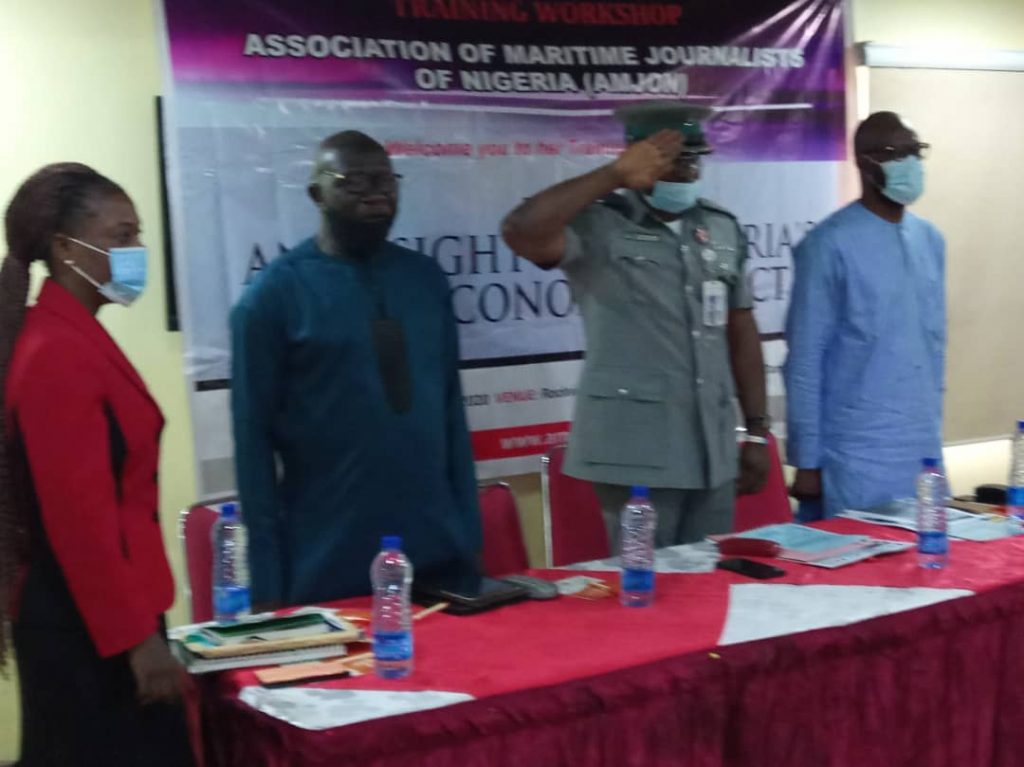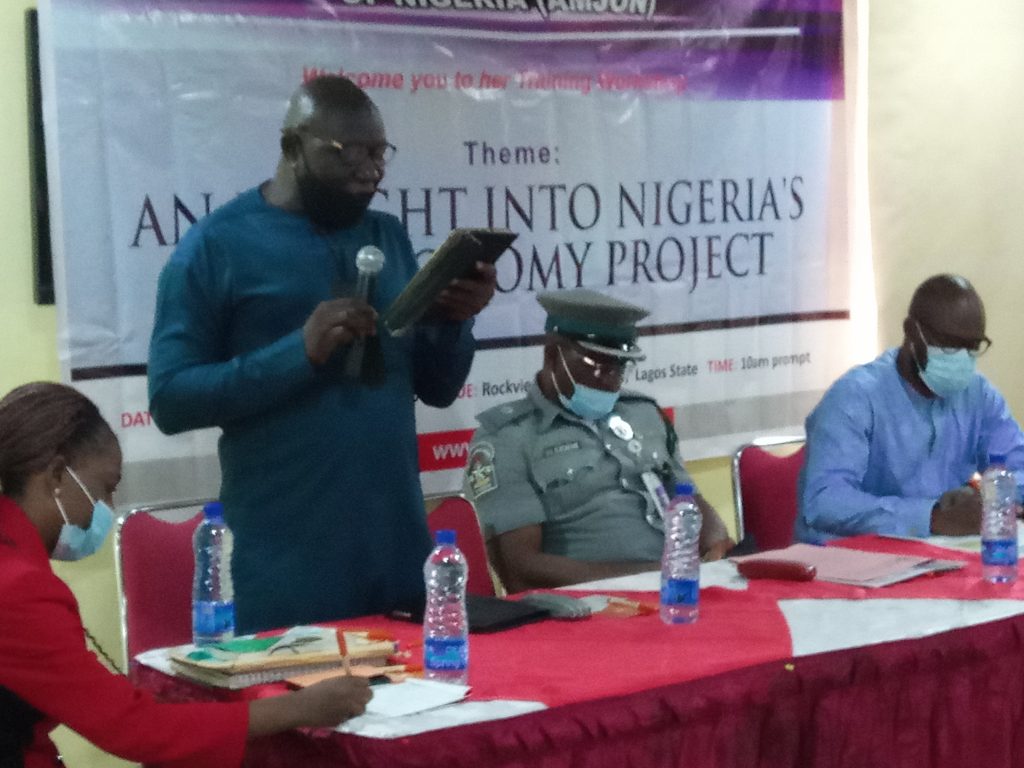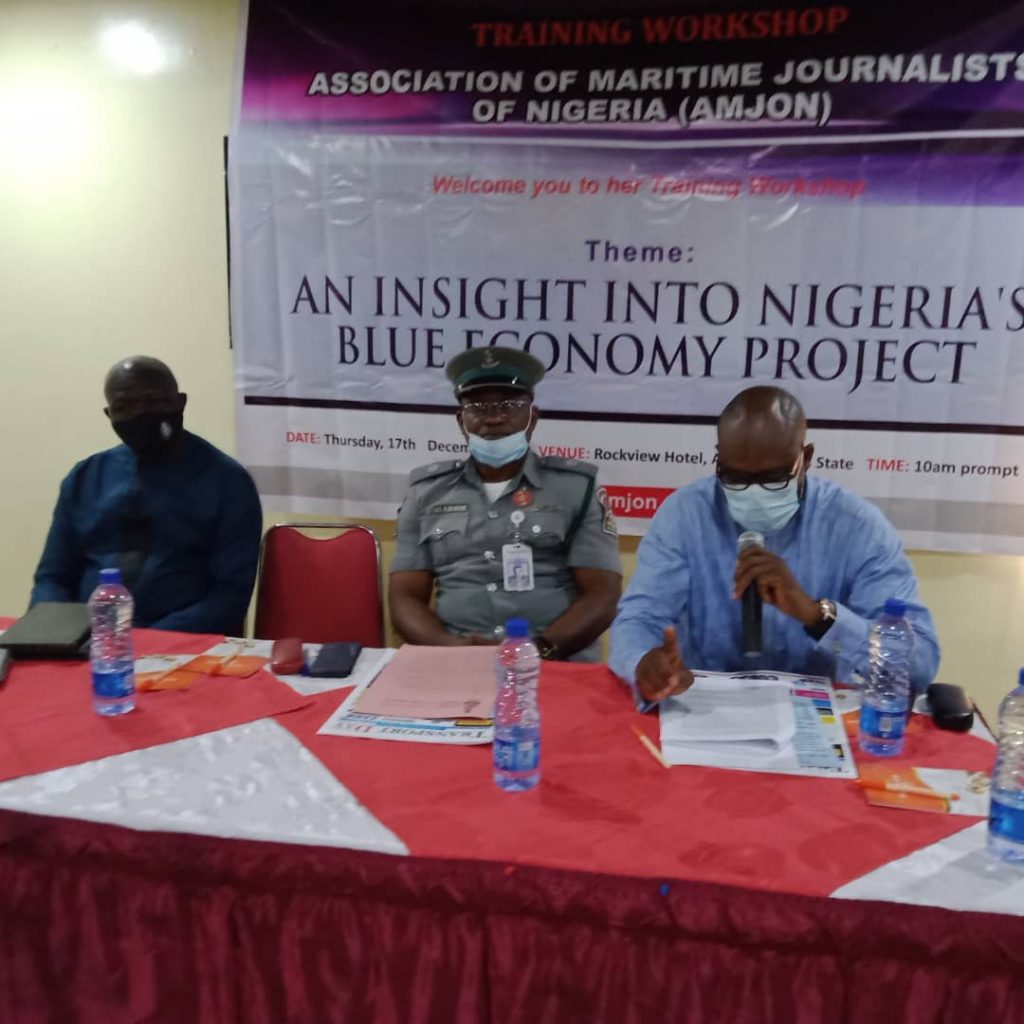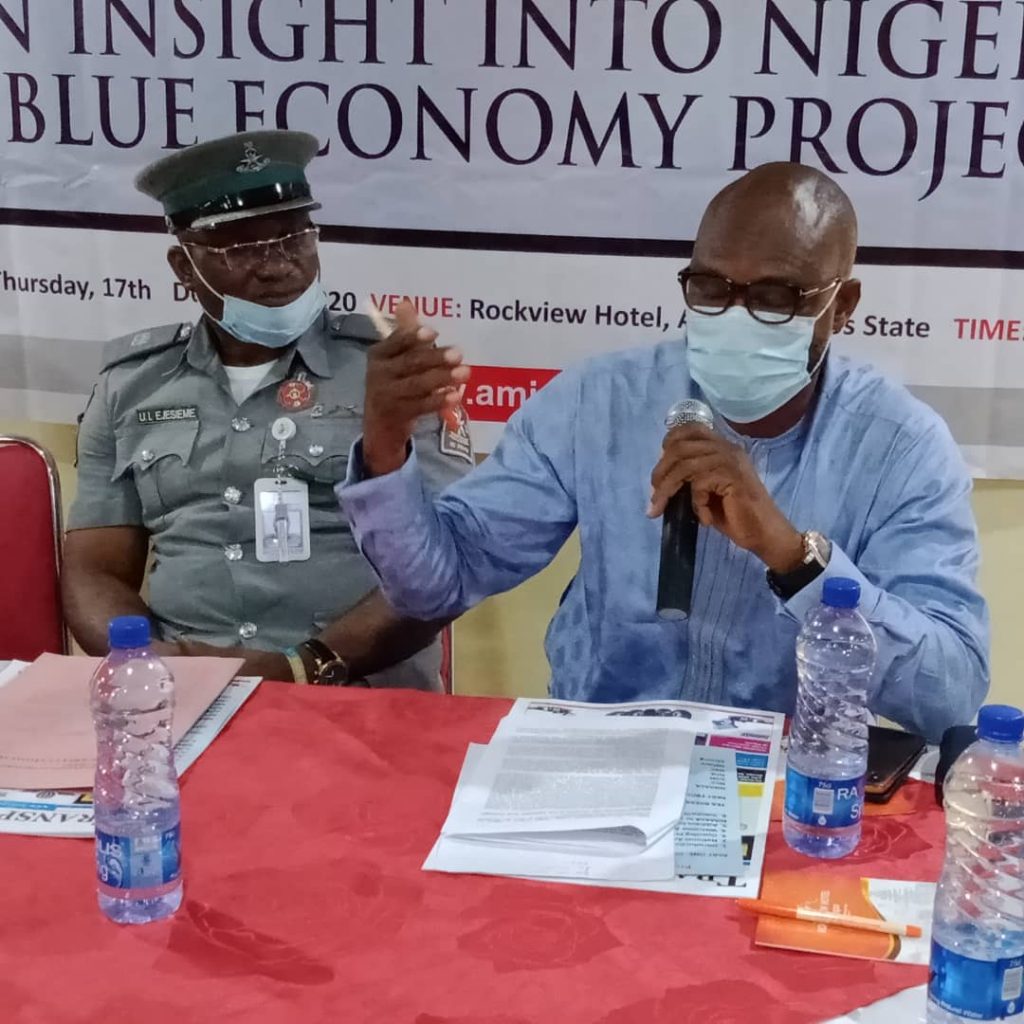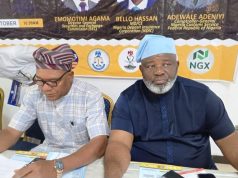The Nigeria Customs Service (NCS) has disclosed plans to roll out an Electronic-Customs platforms with capacity to promote future increase in cargo throughput using technology.
The National Public Relations Officer of the Service, Deputy Comptroller Joseph Attah disclosed this on Thursday in Lagos at a training workshop organised by Association of Maritime Journalists of Nigeria (AMJON) with the theme: An Insight Into Nigeria’s Blue Economy Project.
Joseph Attah who was represented at the training by Uche Ejesieme, a Superintendent of Customs added that the role of the Service in the blue economy would have to do with its initiative towards improving Customs processes and procedures.
He hinted that the e-Customs is set to commence next week, even as the Service said that the platforms would enhance and improve operational methodologies in the agency.
He said, “Our role in the blue economy will have to do with our initiative towards improving customs processes and procedures e.g. you will recall that our automation process began with ASYCUDA, then transited to ASYCUDA++, then we had ASYCUDA 2.7 version, then NCIS 1 and now NCIS 2.
Now, the Service is working on a more active platform/system that will be launched next week that will have the capacity to promote future increase in cargo throughput using technology.”
He added that some deliberate steps created by the service in dealing with Trade Related Disputes include; creation of the dispute resolution committee at the headquarters and at area command’s, the committee’s are charged with the responsibilities of identifying trade dispute and addressing them expeditiously with minimal delays.
According to him, there is a renewed synergy and collaboration between the Nigeria Customs Service and other critical security and regulatory agencies in seaports, airports and the borders.
He maintained that the initiative has enhanced the speed with which issues are handled without the usual rancour, acrimony and which hitherto was the order of the day.
The marine unit of the Service, he said has helped to confront smugglers at the waterways, making seizures and decimating their heinous activities.
Also speaking at the event, the Standards Organisation of Nigeria (SON), decried false declaration by shippers as major hiccup faced by the organisation.
Director General of SON, Farouk Salim who was represented at the event by Benedict Preake, Chief Technical Officer, SON , called on management of the Nigeria Customs Service to collaborate with the agency in furtherance to streamline the NICIS2 portal for effective monitoring and compliance of shippers and freight agents.
Salim also added that the African continent had a long way in properly harnessing the economic power of its marine and maritime economy.
Salim said that the added African wealth that can be generated from the ocean is conservatively valued at US$ 4 trillion, with estimated goods and services of $2.5 trillion annually.
He added that the blue economy had the potential to create both economic growth and development in Nigeria.
“The Blue Economy has the potential to create both economic growth and development. The added African wealth that can be generated from the ocean is conservatively valued at
US$ 4 trillion, with estimated goods and services of $2.5 trillion annually.”
He said that relative inefficiency in African port activities which tended to slow throughput processing times leading to long cargo turnover periods and lower potential incomes would result from faster port processing.
Analysing the causes of the problems hampering sustainable Blue Economy in the maritime sector growth, he listed six key strategic difficulties.
“Political Will: The lack of broad political consensus on the nature of Nigeria’s fiscal federalism has deep economic implications, including making the blue economy a fragile project. If we must operate optimally and make the project work, every port must be made functional (Calabar, Port Harcourt, Warri, Lagos etc)
“Economy: A blue economy would require competitive and efficient use of coastline resources. Nigerian ports and maritime facilities are currently costlier to operate and manage than ports in neighbouring countries such as Cotonu port in Benin Republic Lome Port in Togo or Tema Port in Ghana.
“The relative high cost of Nigerian ports reduces port patronages, efficiencies, operations and related activities; this, in turn, reduces potential employment ,optimal utilization of ports, competiveness and decreased tax revenues.
“This port inefficiencies become more imperative, especially now that Nigeria has become a signatory to “The African Continental Free trade Area deal’’, our operations must be carried out in a less expensive and more efficient administrative environment.
“High incidence of piracy, smuggling, human trafficking and drug peddling makes Nigeria’s maritime business a precarious entrepreneurial activity. The high presence or influence of wharf gangs has created a marine ‘inverse’ ecosystem that is socially precarious.
“Technology adoption is a critical aspect of the evolving blue economy, from stevedoring to cargo handling and inspections, the use of machines has become a compelling necessity to remove the obvious delays and bottle necks that occurs with multi-point human interface in shipping operations.
“Through the digitization of standard operating procedures (SOPs) and use of electronic monitoring and inspection technology has gone a long way in improving port turnaround time and scaled down the levels of delays that result from high levels of human discretion, we can improve on the present scale.
The port environment in Nigeria is poor and nurtures a culture of weak morals and perverse hygiene. Port infrastructures are old and badly maintained while marine shorelines are highly polluted from industrial effluence and waste products, habitually thrown into the dock waters by port users and refuse disposal vendors. The pollution of the ports marine water creates challenges for environmental sustainability.
“The laws and procedures guiding maritime services in Nigeria are comprehensive and fairly robust, the problem seems to stems from procedural enforcement than with the written regulation.
Meanwhile, in his opening speech, the President of AMJON , Mr. Paul Ogbuokiri reiterated the association’s commitment to ensuring a quarterly training for members.
He noted that the training was centred on how to report the Blue Economy Project effectively by members of the association.
Also speaking at the event, Mr Ismail Aniemu, publisher of JournalNG address the use of Social Media in modern journalism practice. Stating that Social media are interactive computer-mediated technologies that facilitate the creation or sharing of information, ideas, career interests, and other forms of expression via virtual communities and networks.
While urging news men to make adequate use of the Social Media platforms he said “Keeping abreast with current affairs is the kernel of concern to every newsman (journalist). Because billions of social media users across the globe are likely to log on to the platforms every morning before going to browse any news website, the press now promote their stories on social media.
“This has become one of the best way to get fast readership and redirect interested users to visit their news websites, share their contents and express opinions or reactions about stories they consume.
“While ordinary users of social media platforms may be excused for some perceived infractions in their mode of information processing and sharing, the journalist is expected to be guided by his professional ethics which include, truth, balance, accuracy, impartiality, protection of minors and objectivity” hr quipped.

